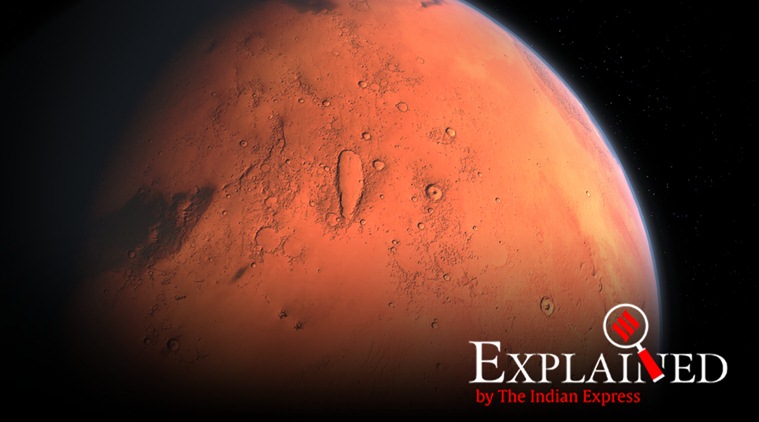
The Indian Express
Explained: What is Tianwen-1, China’s Mars mission?
China’s Mars mission: China's previous ‘Yinghuo-1’ Mars mission, which had piggybacked on a Russian spacecraft, had failed after it could not leave the Earth's orbit and disintegrated over the Pacific Ocean in 2012.
by Explained DeskChina’s space program is now slated to achieve a new milestone. In July, the country will launch its first Mars mission, the ‘Tianwen-1’, which is expected to land on the Red Planet’s surface in the first quarter of 2021. The success of the mission will make China the third country to achieve a Mars landing after the USSR and the United States.
Named after the ancient Chinese poem ‘Questions to Heaven’, the Tianwen-1, an all-in-one orbiter, lander and rover will search the Martian surface for water, ice, investigate soil characteristics, and study the atmosphere, among completing other objectives.
The Tianwen-1 mission
The Tianwen-1 mission will lift off on a Long March 5 rocket, a launch system developed by the China Academy of Launch Vehicle Technology (CALT), from the Wenchang launch centre, and will carry 13 payloads (seven orbiters and six rovers) that will explore the planet. The mission’s launch in July was confirmed on Sunday by the China Aerospace Science and Technology Corporation (CASC), which has been working on the project since 2016.
As per a report in the Air and Space Magazine, the Chinese mission will be the first to place a ground-penetrating radar on the Martian surface, which will be able to study local geology, as well as rock, ice, and dirt distribution. Two candidate landing sites have been identified, one of them being Utopia Planitia, according to Space News.
China’s previous ‘Yinghuo-1’ Mars mission, which had piggybacked on a Russian spacecraft, had failed after it could not leave the Earth’s orbit and disintegrated over the Pacific Ocean in 2012.
The Chinese mission is expected to take off in late July, around the same time when NASA is launching its own Mars mission– the ambitious ‘Perseverance’ which aims to collect Martian samples and bring them back to Earth in a two-part campaign.
Also in Explained: What InSight has told us about Mars so far
Previous Mars missions
The USSR in 1971 became the first country to carry out a Mars landing– its ‘Mars 3’ lander being able to transmit data for 20 seconds from the Martian surface before failing. The country made its second and Mars landing two years later in 1973.
The second country to reach Mars’s surface, the US, holds the record for the most number of Mars landings. Since 1976, it has achieved 8 successful Mars landings, the latest being the ‘InSight’ in 2019 (launched in 2018).
India and the European Space Agency have been able to place their spacecraft in Mars’s orbit. India’s Mars Orbiter Mission (MOM) or ‘Mangalyaan’ was able to do so in September 2014, almost a year after its launch from the Satish Dhawan Space Centre in Andhra Pradesh.
Why Mars exploration
After the Moon, the most number of space missions in the Solar System have been to Mars. Despite being starkly different in many ways, the Red Planet has several Earth-like features– such as clouds, polar ice caps, canyons, volcanoes, and seasonal weather patterns.
For ages, scientists have wondered whether Mars can support life. In the past few years, Mars missions have been able to discover the possible presence of liquid water on the planet, either in the subsurface today or at some point in its past.
This has made space explorers more curious about whether the planet can sustain life. Newer NASA missions have since transitioned from their earlier strategy of “Follow the Water” to “Seek Signs of Life”.